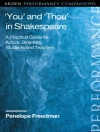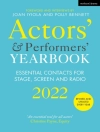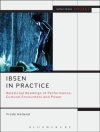Since the early 1950s, Chris Marker has embraced different filmmaking styles as readily as he has new technologies, and has broadened conceptions of the documentary in distinctly personal ways. He has travelled around the world, tracking political upheavals and historic events, as well as unearthing the stories buried under official reporting. This globetrotting filmmaker testifies to his six decades on the move through a passionate devotion to the moving image. Yet from the outset, his filmic images reveal a fascination with stillness. It is at this juncture of mobility and immobility that Sarah Cooper situates her comprehensive study of Marker’s films.
She pays attention to the central place that photographs occupy in his work, as well as to the emergence in his filming of statuary, painting and other static images, including the film still, and his interest in fixed frame shooting. She engages with key debates in photographic and film theory in order to argue that a different conception of time emerges from his filmic explorations of stasis.
In detailed readings of each of his films, including Le souvenir d’un avenir and La Jetee, Sans soleil and Level 5, Cooper charts Marker’s concern with mortality in varied historical and geographical contexts, which embraces the fragility of the human race, along with that of the planet.
Inhaltsverzeichnis
Acknowledgements
Introduction: Screening Life
1 The Early Years: 1950-1961
2 A Second Beginning: 1962-1966
3 Collective Endeavour: 1967-1977
4 Continuity and Change: The 1980s
5 Level 5 and Beyond: 1990 Onwards
Concluding Remarks
Filmography
Select Bibliography
Über den Autor
Robert Ingram is Associate Dean in the School of Languages and European Studies at the University of Wolverhampton












